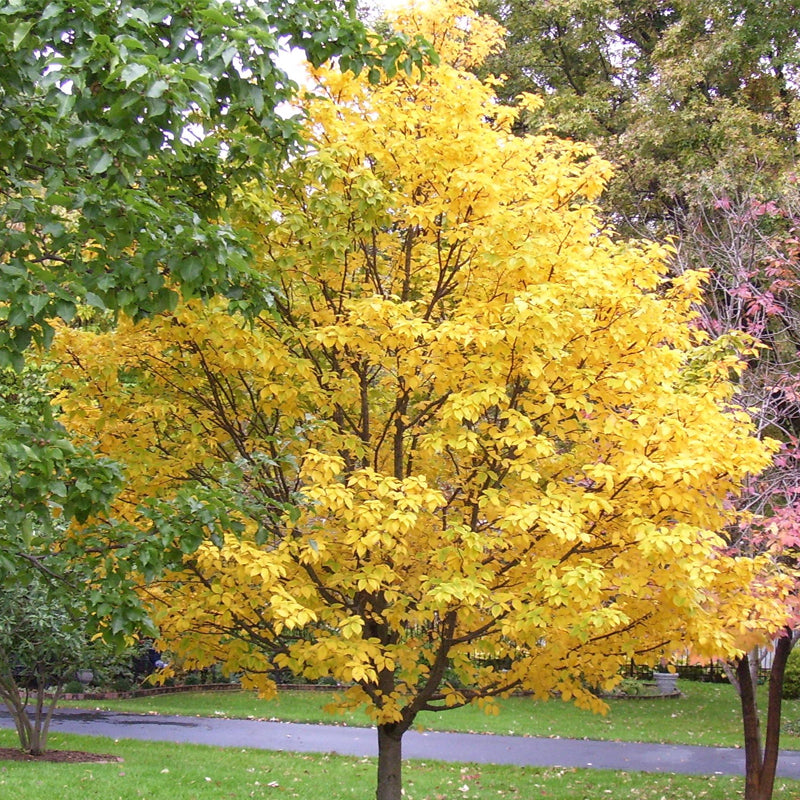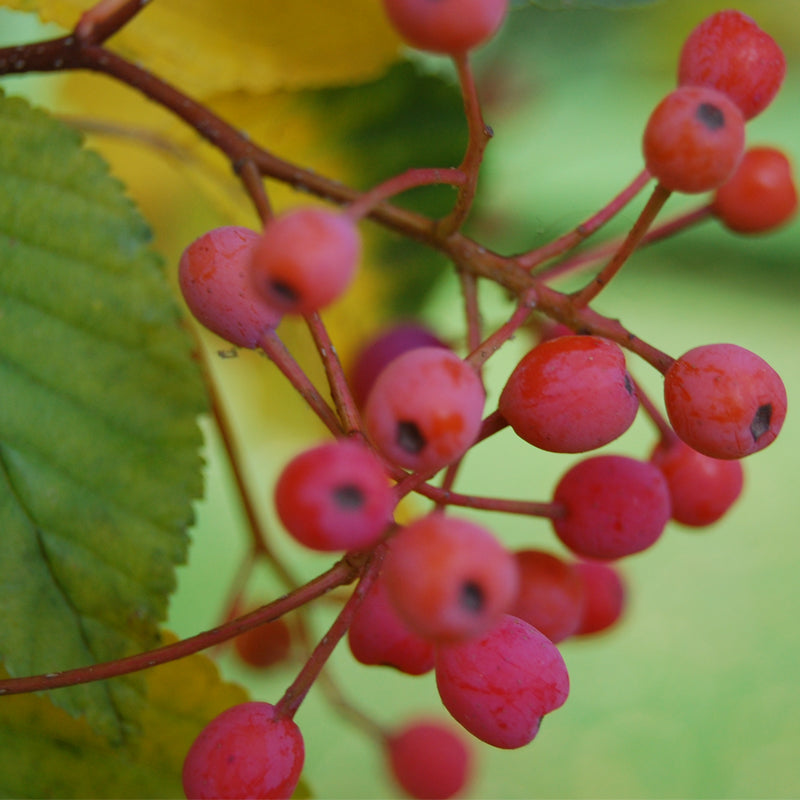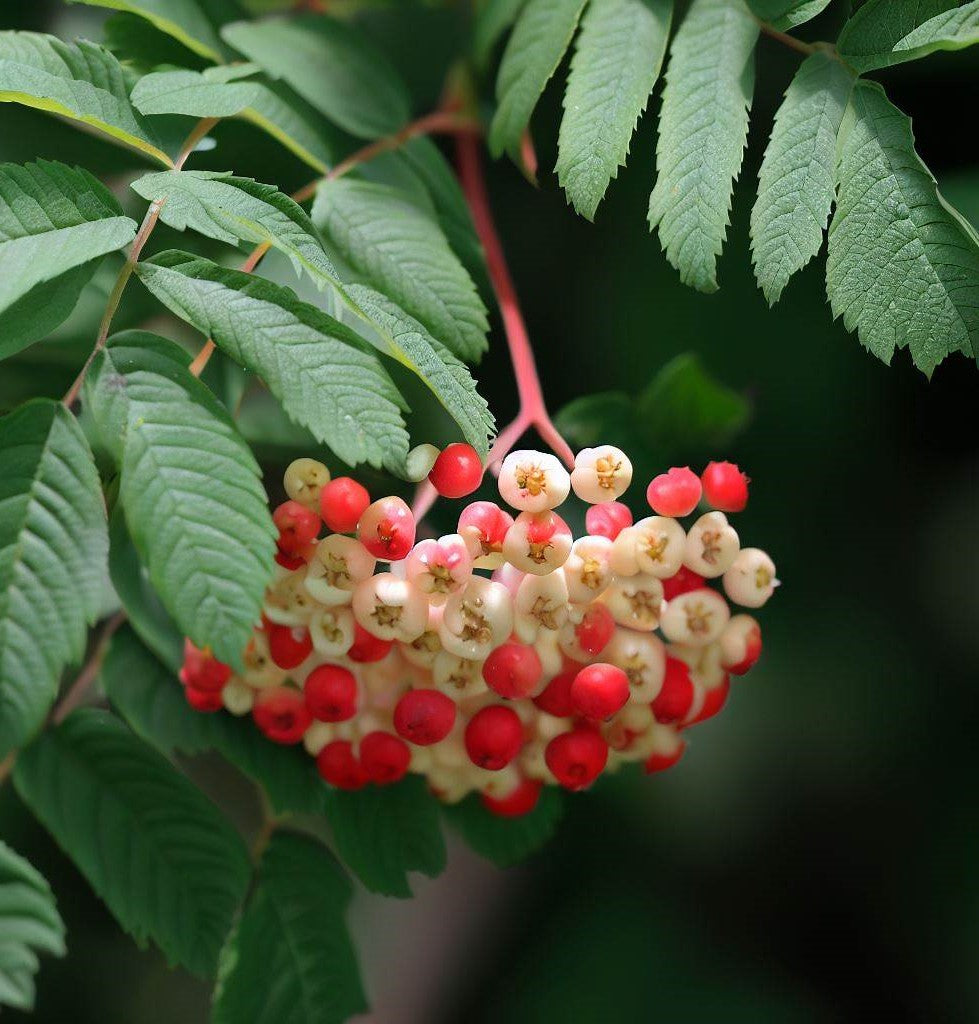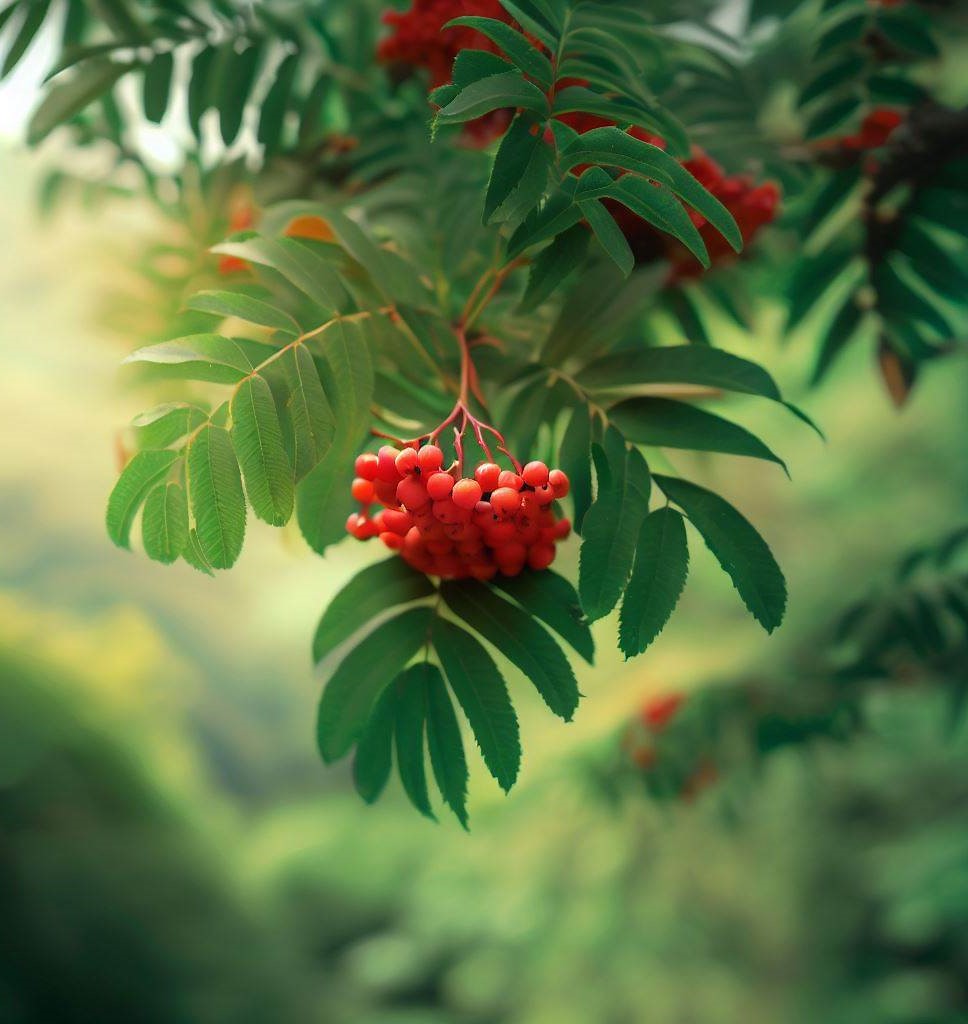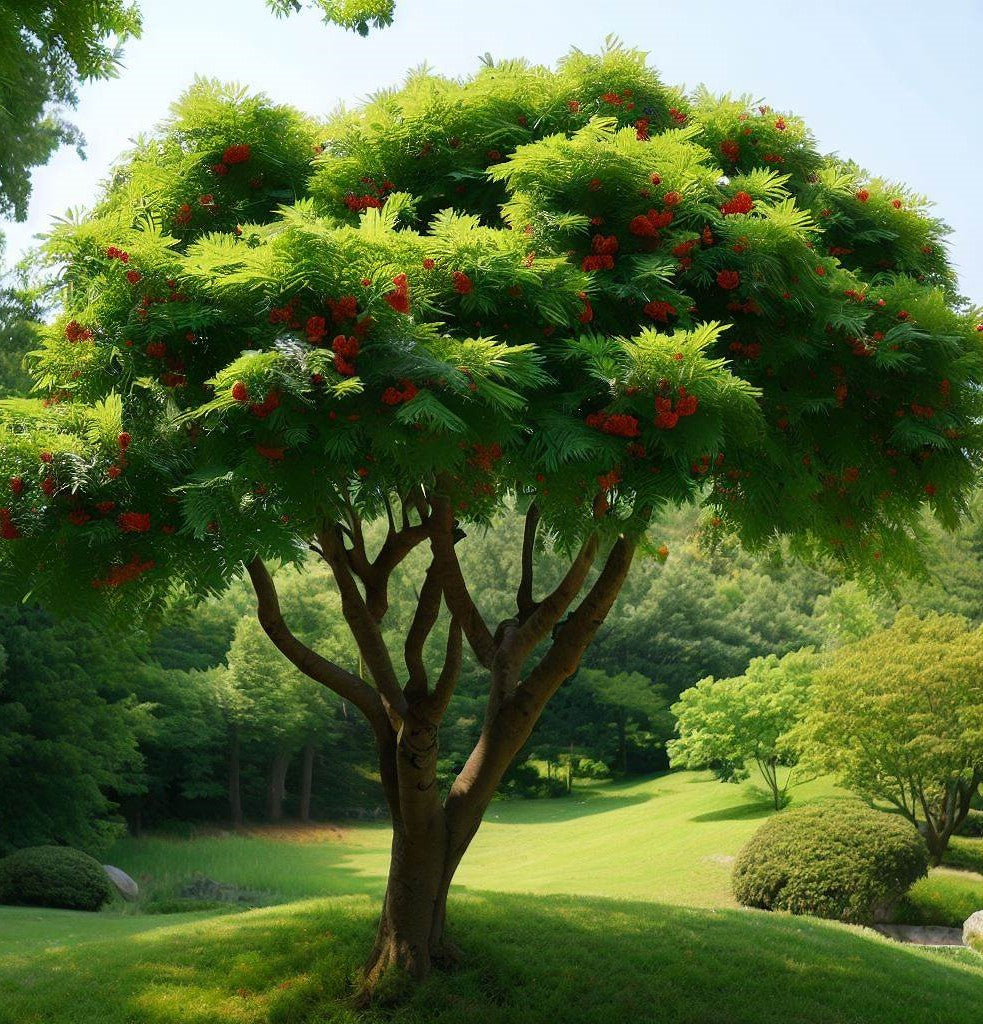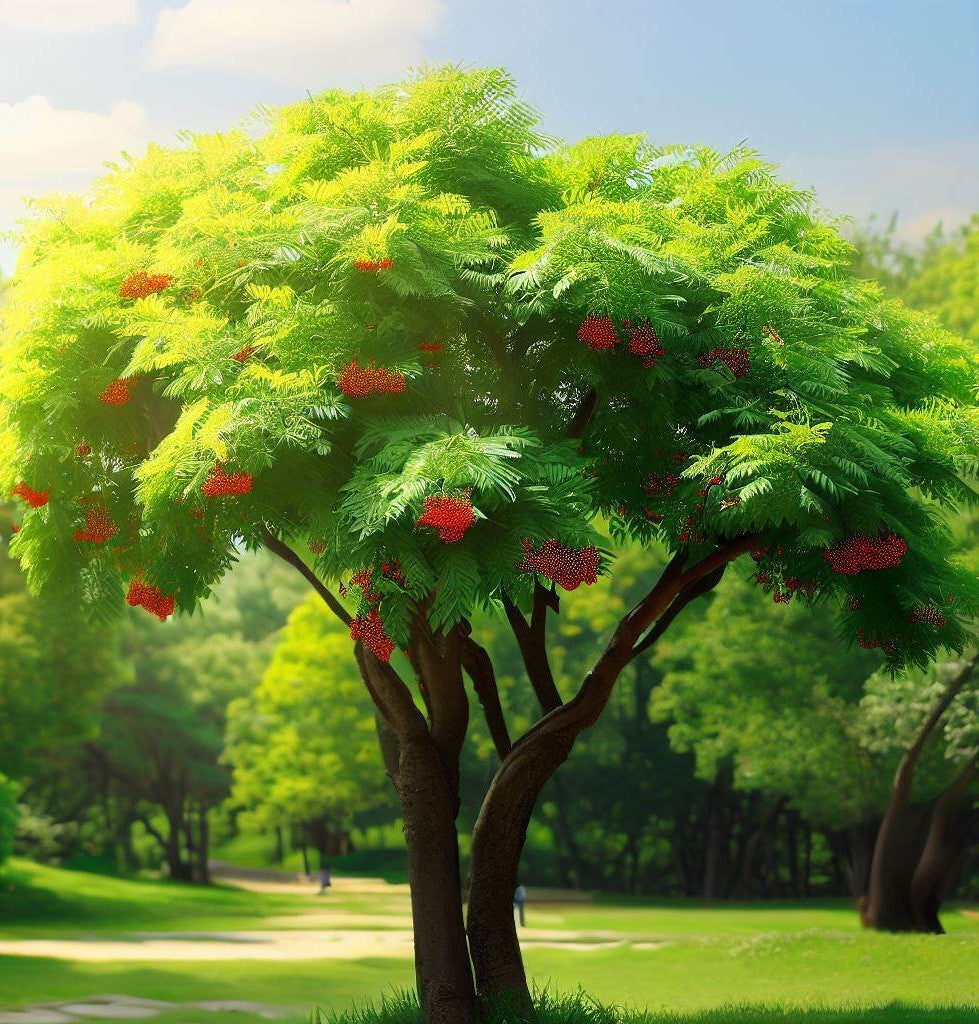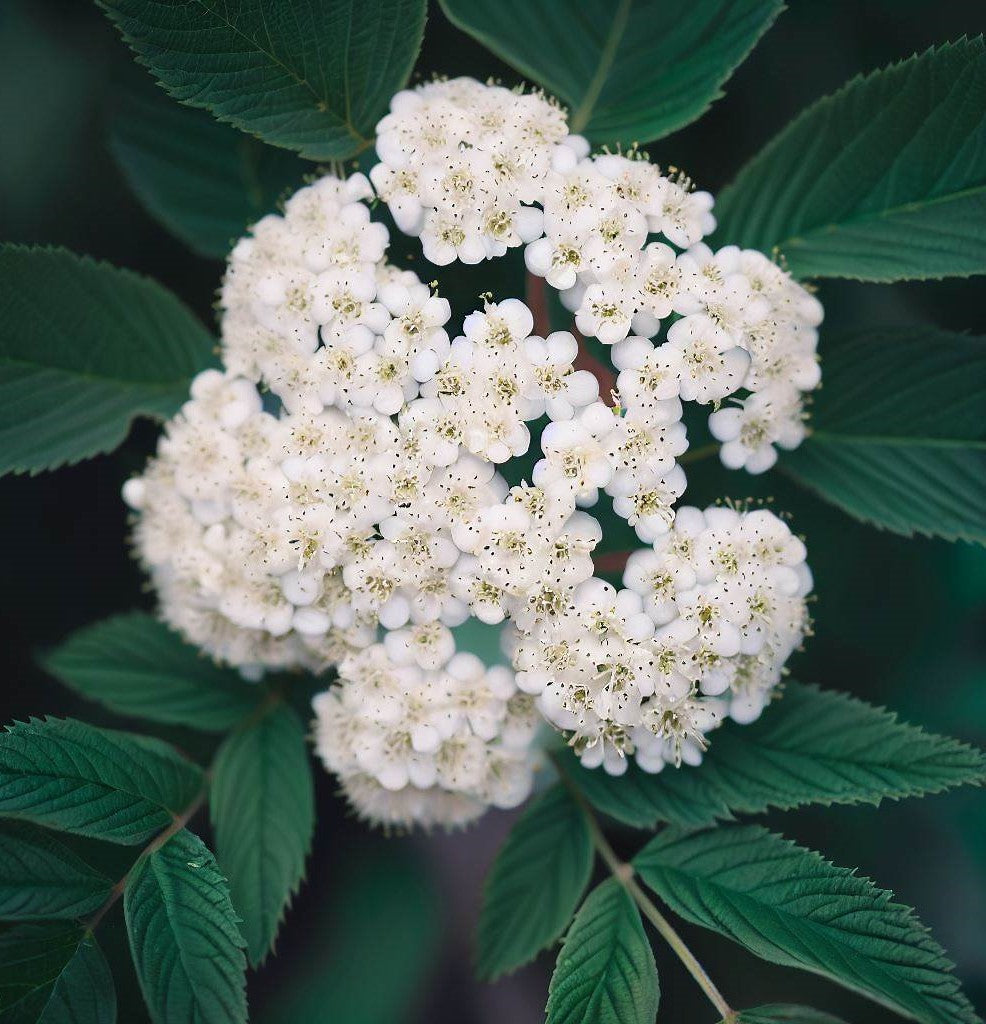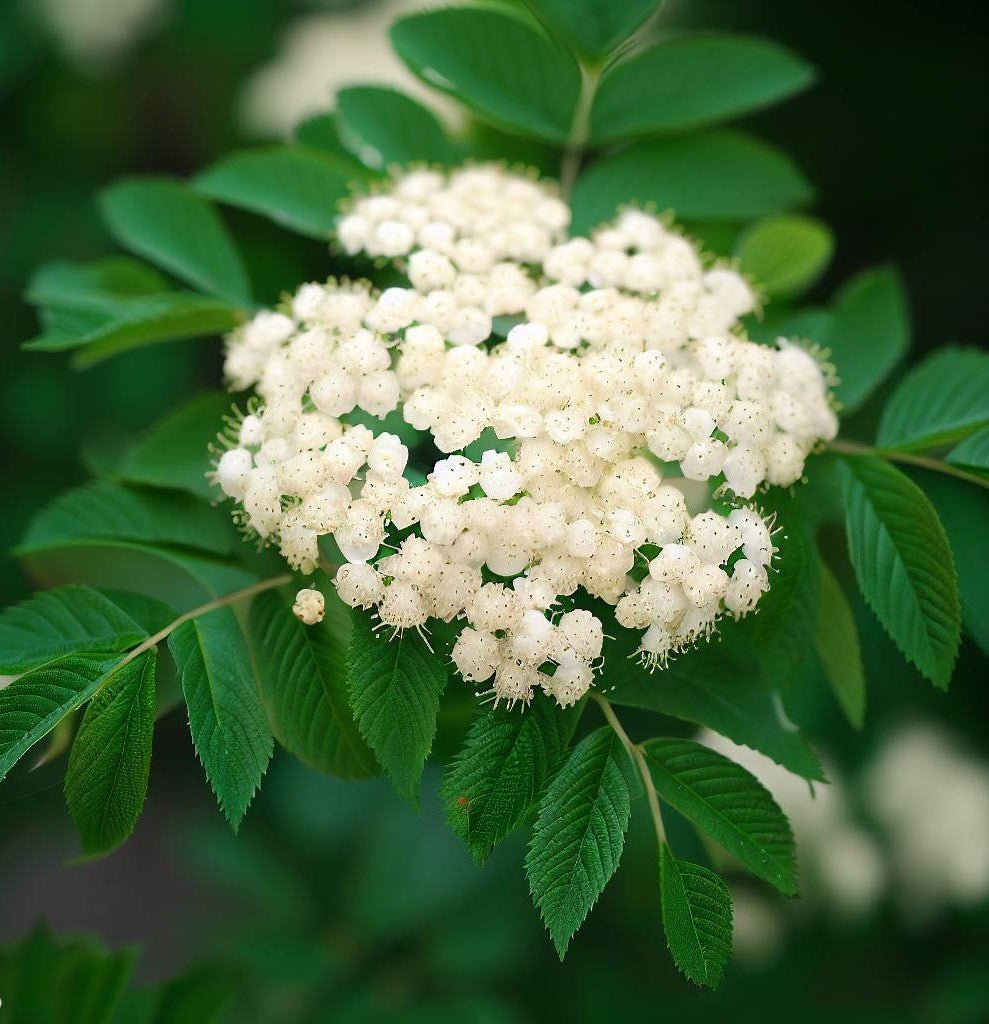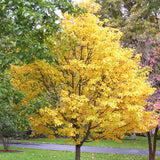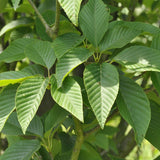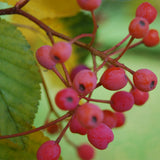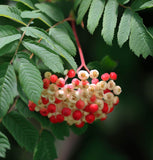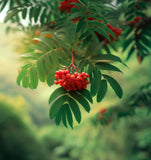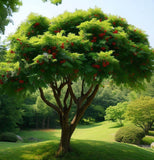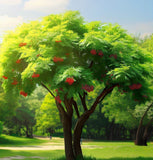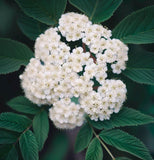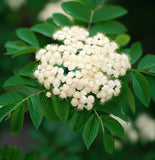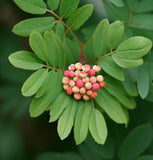Sorbus alnifolia (Korean Mountain Ash)
Sorbus alnifolia (Korean Mountain Ash) is a deciduous tree native to various parts of Asia, including Korea, China, and Japan. Korean Mountain Ash is a medium-sized tree that typically reaches a height of 20 to 40 feet (6 to 12 meters) with a rounded crown. It has pinnate leaves with serrated leaflets that resemble the leaves of alder trees, hence the species name "alnifolia." The leaves are green during the growing season and can turn shades of yellow, orange, or red in the autumn, providing attractive fall foliage. The tree produces clusters of white flowers in the spring, followed by small orange to red berries that persist into the winter, attracting birds.
Habitat and Range: Sorbus alnifolia is native to a wide range of habitats, including forests, woodlands, and mountainous regions, in its native Asian range. It is adaptable to different soil types but generally prefers well-drained soils. It is cold-hardy and can tolerate cooler climates.
Berries: The berries of Korean Mountain Ash are small, round, and range in color from orange to red. They appear in clusters and persist on the tree into the winter, providing a valuable food source for birds and wildlife during the colder months.
Landscape Use: Korean Mountain Ash is cultivated as an ornamental tree in gardens and landscapes. It is valued for its attractive foliage, showy spring flowers, and colorful berries, which add visual interest to the landscape. It can be used as a specimen tree, in group plantings, or in wildlife gardens to attract birds.
Wildlife Value: The berries of Sorbus alnifolia are an important food source for birds, including thrushes and waxwings, as well as other wildlife species. The tree provides habitat and nesting sites for birds and supports a variety of insect pollinators.
Cultural Significance: In its native range, Korean Mountain Ash has cultural significance and is sometimes used in traditional medicine for its potential medicinal properties. The berries are occasionally used in culinary preparations, such as making jams or preserves.
If you are considering planting Sorbus alnifolia, it is recommended to ensure that it is suitable for your specific climate and growing conditions. It generally prefers well-drained soil and can tolerate both full sun and partial shade. As with any plant, local conditions and proper care should be taken into consideration for successful cultivation.
Botanical Name : Sorbus alnifolia
Common Name : Korean Mountain Ash
Height : 40- 50 ft
Spread : 30 ft
Germination Info : Seed requires 90 days cold moist stratification
Hardiness zone : 4-7
Average seed per ounce : Approx. 7,500


